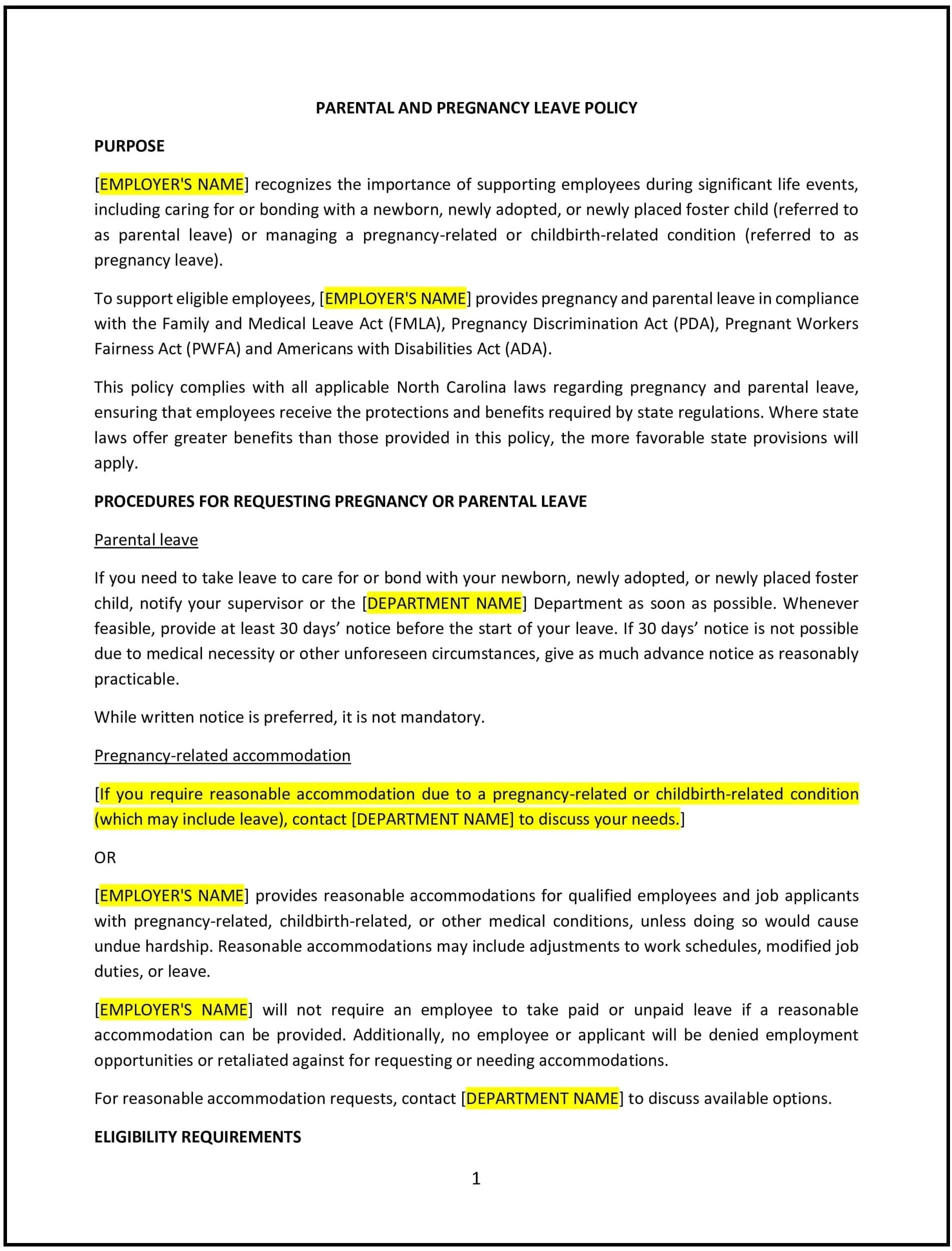Parental and pregnancy leave policy (North Carolina): Free template
Got contracts to review? While you're here for policies, let Cobrief make contract review effortless—start your free review now.

Customize this template for free
Parental and pregnancy leave policy (North Carolina)
A parental and pregnancy leave policy helps North Carolina businesses provide employees with the necessary time off for pregnancy, childbirth, and child-rearing. This policy outlines the company’s support for employees during pregnancy and the birth of a child, including the duration of leave, eligibility, and the benefits provided during this time.
By adopting this policy, businesses can support employees during significant life events, maintain a supportive work environment, and improve compliance with federal and state family leave laws.
How to use this parental and pregnancy leave policy (North Carolina)
- Define eligibility: Specify which employees are eligible for parental and pregnancy leave, such as those who have worked for the company for a certain period and meet the requirements for leave under North Carolina’s family leave laws.
- Outline leave duration: Specify the length of time employees are entitled to take for parental and pregnancy leave, including whether the leave is paid or unpaid.
- Address health benefits: Clarify whether employees will continue to receive health insurance benefits during the leave period and how the benefits will be managed.
- Set procedures for requesting leave: Establish the process for employees to request leave, including the necessary documentation (e.g., medical certificates) and the timeline for submitting requests.
- Reflect North Carolina-specific considerations: Ensure the policy complies with North Carolina’s family and medical leave laws, as well as any state-specific benefits for parental leave.
Benefits of using this parental and pregnancy leave policy (North Carolina)
This policy provides several benefits for North Carolina businesses:
- Supports employees during life events: By providing time off for pregnancy, childbirth, and child-rearing, businesses demonstrate their commitment to supporting employees’ personal and family needs.
- Enhances employee retention: Offering parental and pregnancy leave can improve employee satisfaction and retention, as employees feel valued and supported during a significant life event.
- Reduces legal risk: A clear and compliant policy helps businesses avoid legal risks related to family leave, including discrimination or wrongful termination claims.
- Promotes work-life balance: By offering parental leave, businesses allow employees to manage their personal and professional responsibilities more effectively, improving overall job satisfaction.
- Builds a positive company reputation: Companies with family-friendly policies attract top talent, particularly those who value work-life balance and family support.
Tips for using this parental and pregnancy leave policy (North Carolina)
- Communicate the policy clearly: Ensure that all employees are aware of their parental and pregnancy leave entitlements and understand the procedures for requesting leave.
- Provide adequate support: Offer guidance and support to employees taking parental leave, including assistance with transitioning back to work after their leave period ends.
- Monitor leave requests: Track parental and pregnancy leave requests to ensure that they are handled consistently and fairly.
- Review the policy regularly: The policy should be reviewed annually to ensure it complies with North Carolina’s family leave laws and reflects the evolving needs of employees.